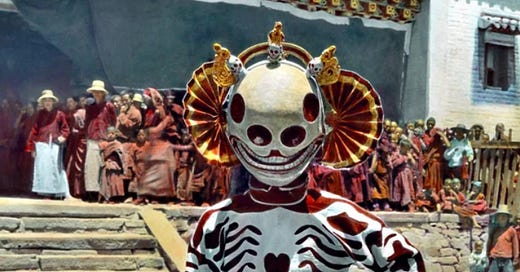Death As A Teacher
How contemplating death awakens us to life. Plus, creative exercises on decay and renewal.
Hi y’all,
Lately I’ve been grateful that I went to funerals as a child.
My mother, who took me to these services, was the sort of person who knew a lot of people—and when you know a lot of people, you also know a lot of people who are going to die. She went to funerals and visitations several times a year. I often came with her.
Looking back on it, having …




